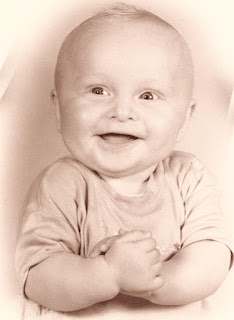There are many intersections between George Washington and Ohio history. Here is a particular link between Washington's Virginia plantations and Harmony Township, Morrow County, Ohio. While working on the George Family genealogy, I constructed the family history that encompasses Chester Township and Harmony Township in Morrow County, as well as Licking County.
This article is about James A. Bloxham, Harmony Township, Morrow County. James A. Bloxham is the son of his father by the same name who came to America to work for George Washington at Mt. Vernon.
"James Bloxham was an English farmer hired by George Washington via his friend, George William Fairfax of Belvoir Plantation. Bloxham worked at Mount Vernon from April of 1786 through 1790. Also, Bloxham's family was brought over from England in 1787 to live at Mount Vernon.
Before arriving in America, Bloxham had worked for William Peacey of North Leach, in Gloucestershire. Peacey was considered a leading gentleman farmer in Britain, and Bloxham was brought to Mount Vernon to impart the skills that he had assimilated in William Peacey's employment.1"
http://www.mountvernon.org/digital-encyclopedia/article/james-bloxham/James Bloxham Sr. was married to Catherine Dunnington and they had children: James A., Jane Eliza, John T, and Alfred. Except for James A. Bloxham, his siblings stayed in Virginia and continued to work in the agriculture industry in and around Alexandria, Virginia. Of course, Alexandria was the center of slave trade and commerce focused on the tobacco industry.
James Bloxham Sr. expressed his displeasure with slavery to George Washington that is a matter of record. In subsequently documented discussions, Bloxham explained that persons who were kept without freedom were hard to motivate. Washington agreed.
His son, James A. Bloxham lived in Snickersville, Virginia where he married Melinda Jury. The couple set out to pioneer a farm in Ohio.
James A. Bloxham
1802–1880
BIRTH 11 MAR 1802 • Virginia
DEATH 08 MAR 1880 • Harmony, Morrow County, Ohio, USA
3rd great-grandfather
Old maps of Harmony Township show the Bloxham farm that is located near George family farms. James and Melinda had children, one of which was Mary Elizabeth Bloxham.
Mary Elizabeth Bloxham
1832–1880
BIRTH 12 SEP 1832 • Virginia
DEATH 4 MAR 1880 • Morrow, Ohio, United States
2nd great-grandmother
Mary Elizabeth married Richard D. George.
Richard D George
1830–1877
BIRTH 14 FEB 1830 • Licking County, Ohio
DEATH 2 JULY 1877 • Ohio, USA
2nd great-grandfather
Richard and Mary had a farm in Harmony Township from which their son, James A. George would inherit some land for farming. James A. George and Addie Jane Clark had ten children of which one was my Grandfather, Oscar Taylor George and one was a Great Uncle, James A. George after whom I was named.
The "A" stands for Almond which purportedly is passed down from James A. Bloxham.
"On 31 May 1786, through George William’s efforts, Washington contracted with what he hoped was such a man: James Bloxham of Gloucestershire, England, who agreed to assist Washington in managing stock (to be maintained primarily as a source of manure) and to instruct farm laborers “to Plow, Sow; Mow, Reap; Thatch; Ditch; Hedge &ca in the best manner.” [6] By mid-summer Washington was a bit disappointed with Bloxham.
“In a word,” he wrote to William Peacey he seems rather to have expected to have found well organized farms, than that the end and design of my employing him was to make them so. He makes no allowances for the ravages of a nine year’s war from which we are but just begining to emerge, nor does he consider that if our system of Husbandry had been as perfect as it may be found on your Farms, or in some of the best farming Counties in England, there would have been no occasion for his Services. [7]
For his part, Bloxham was apparently frustrated and disappointed by the utility of Washington’s slaves. To his former employer, Peacey, Bloxham wrote that “tese Black Peope I am Rather in Danger of being posind [poisoned].” He doubted whether Washington would be able to improve the farm, “for he have a Sett of About him which I nor you would Be trobled with But the General is goot them and he must Keep them But they are a verey Desagreable People.” [8]
Bloxham’s disappointment with slave labor mirrored the sentiments of his new employer. By the spring of 1786 Washington seems to have become thoroughly discouraged with the prospect of running his plantation on the best principles using slave labor, and more generally frustrated with the institution of slavery itself. In April 1786, in a letter critical of the efforts of the Pennsylvania Society for the Abolition of Slavery to obtain freedom for a slave taken to Philadelphia by an Alexandria shopkeeper, Washington expressed the hope that some scheme for the abolition of slavery would be adopted. “I hope it will not be conceived from these observations,” he wrote to Robert Morris, that it is my wish to hold the unhappy people who are the subject of this letter, in slavery. I can only say that there is not a man living who wishes more sincerely than I do, to see a plan adopted for the abolition of it — but there is only one proper and effectual mode by which it can be accomplished, & that is by Legislative authority: and this, as far as my suffrage will go, shall never be wanting. [9]"
http://gwpapers.virginia.edu/editions/letterpress/confederation-series/volume-4-april-1786-january-1787/
Washington, George: Mount Vernon, 1757
George Washington at home in Mount Vernon, Virginia, on leave from the military, 1757.
Nathaniel Currier—The Bridgeman Art Library/Getty Images













